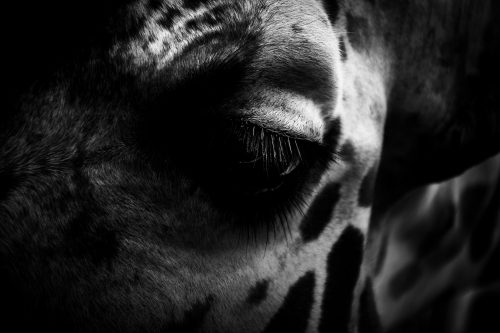Are you prepared to walk away from everything? This rarely asked question shapes one of the most important principles in my life.
We are all familiar with the age-old hypothetical in which our home is burning and we must grab only the things that are most important to us. Of course, most of us would not dash into the inferno and reach for material items first—we’d ensure the safety of our loved ones and pets. Then, once they were safe, we’d grab only the irreplaceable things—photos, hard drives, family heirlooms. Everything else would be lost in the conflagration.
I like to look at this thought experiment differently, though, taking the theoretical a bit further.
There is a scene in Heat in which Neil McCauley (Robert De Niro) says, “Allow nothing in your life that you cannot walk out on in 30 seconds flat.” Although my life is nothing like McCauley’s (he’s the film’s bad guy), I share his sentiment. Almost everything I bring into my life—possessions, ideas, habits, and even relationships—I must be able to walk away from at a moment’s notice.
Many readers will disagree because this credo sounds crass. But I’d like to posit that it’s the opposite: our preparedness to walk away is the ultimate form of caring.
If I purchase new physical goods, I need to make certain I don’t assign them too much meaning. Being able to walk away means I won’t ever get too attached to my belongings, and being unattached to stuff makes our lives tremendously flexible—filled with opportunity.
If I take on a new idea or habit, I do so because it has the potential to benefit my life. New ideas shape the future Me. Same goes for habits. Over time my ideas change, improve, and expand, and my current habits get replaced by new ones that continue to help me grow. Our readiness to jilt ideas or habits means we’re willing to grow—we’re willing to constantly pursue a better version of ourselves.
If I bring a new relationship into my world, I know I must earn their love, respect, and kindness. I also expect they, too, are willing to leave should I not provide the support and understanding they require. Thus, we both must work hard to contribute to the relationship. We must communicate and remain cognizant of each other’s needs. And, above all, we must care. These fundamentals—love, communication, understanding, caring—build trust, which builds a stronger connection in the long run. It sounds paradoxical, but our willingness to walk away strengthens our bond with others. And the opposite stance—being chained by obligation to a relationship—is disingenuous, a false loyalty birthed from pious placation.
There are obvious exceptions to this rule—efforts we cannot easily abandon: a marriage, a business partnership, a career, a passion. The key is to have as few exceptions as possible.
Crucially, even these exceptions aren’t exceptions. Marriages often end, as do businesses. People get laid off, and passions change over time. Even though we might not be able to walk away from these endeavours in “30 seconds flat,” we can ultimately decamp when these situations no longer serve us.
Everything I allow into my life enters it deliberately. If my home was aflame, there’s nothing I own that can’t be replaced: All photos are scanned. All important files are backed up. And all the stuff has no real meaning. Similarly, I’m prepared to walk away from nearly anything—even the people closest to me—if need be. Doing so safeguards my continued growth and improves my relationships, both of which contribute to a fulfilling, meaningful life.
It was C.S. Lewis who, 50 years ago, eloquently said, “Don’t let your happiness depend on something you may lose.” In today’s material world, a world of fear-fueled clinging, his words seem more apropos than ever.
Read this essay and 150 others in our book, Essential.
You May Also Enjoy
How to Start a Successful Blog TodayLearn how to start a blog in less than an hour. Follow the step-by-step instructions we used when starting our blog, which now has reached more than 20 million people. Creating this blog is one of the best decisions Ryan and I ever made. After all, our blog is how we earn a living. More important, it's how we add value to other people's lives. Read more
30-Day Minimalism GameLet's play a simple game together. We call it the 30-Day Minimalism Game. Find a friend, family member, or coworker who's willing to minimize their stuff with you next month. Read more
11 Ways to Write BetterWe are all writers now. Whether you write books, blog posts, emails, Instagram captions, or text messages, you are a writer. No matter your preferred medium, here are a few tips to help you write more effectively. Read more

